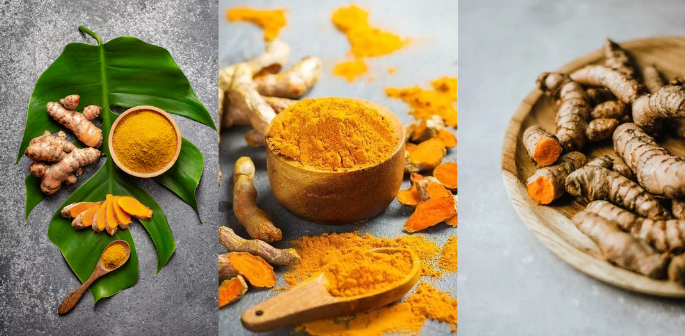Introduction:
Turmeric, a vibrant yellow spice, has been revered for centuries in traditional medicine for its myriad health benefits. Derived from the root of the Curcuma longa plant, it is not only a culinary staple in many cultures but also a potent natural remedy. This article delves into the health-promoting properties of turmeric, supported by scientific research, highlighting its anti-inflammatory, antioxidant, and therapeutic effects.
What is Turmeric?
Turmeric is a perennial herbaceous plant native to Southeast Asia. The spice is obtained from the dried and ground rhizomes of the plant and is a key ingredient in many Asian dishes, imparting a distinctive color and flavor. Beyond its culinary uses, turmeric has been used in Ayurvedic and Chinese medicine for its anti-inflammatory and healing properties.
Health Benefits of Turmeric
- Anti-inflammatory Effects: Curcumin, the active compound in turmeric, has powerful anti-inflammatory properties, comparable to some pharmaceutical drugs but without the side effects.
- Antioxidant Capacity: Turmeric is rich in antioxidants that neutralize free radicals, which can cause cellular damage and lead to chronic diseases.
- Brain Health: Curcumin has been shown to cross the blood-brain barrier and may help improve symptoms of mood disorders and neurodegenerative diseases by reducing inflammation and oxidative stress.
- Heart Health: Turmeric may improve endothelial function, reducing the risk of heart disease, and help lower cholesterol and blood pressure levels.
- Cancer Prevention: Research suggests that curcumin can influence various biological processes involved in cancer development, growth, and spread.
Using Turmeric in Your Diet
Turmeric can be incorporated into the diet in various ways:
- As a spice in cooking, especially in curries, soups, and rice dishes.
- As a supplement in the form of capsules, extracts, or powders.
- In beverages, such as turmeric tea or golden milk, mixed with warm milk and honey.
Safety and Dosage
Turmeric is generally safe when consumed in food amounts. However, high doses or long-term use of supplements may lead to digestive issues, such as stomach upset, nausea, and diarrhea. The recommended daily intake of curcumin is not established, but most studies use doses of 500–2,000 mg per day, often in supplement form. It’s important to consult with a healthcare provider before starting any new supplement regimen.
Conclusion:
Turmeric, with its anti-inflammatory, antioxidant, and potential anti-cancer properties, stands out as a powerful natural remedy and dietary addition. Incorporating this golden spice into your daily diet may offer significant health benefits and contribute to overall well-being. As with any supplement, moderation and proper guidance from a healthcare professional are advised to maximize turmeric’s health-promoting potential.

